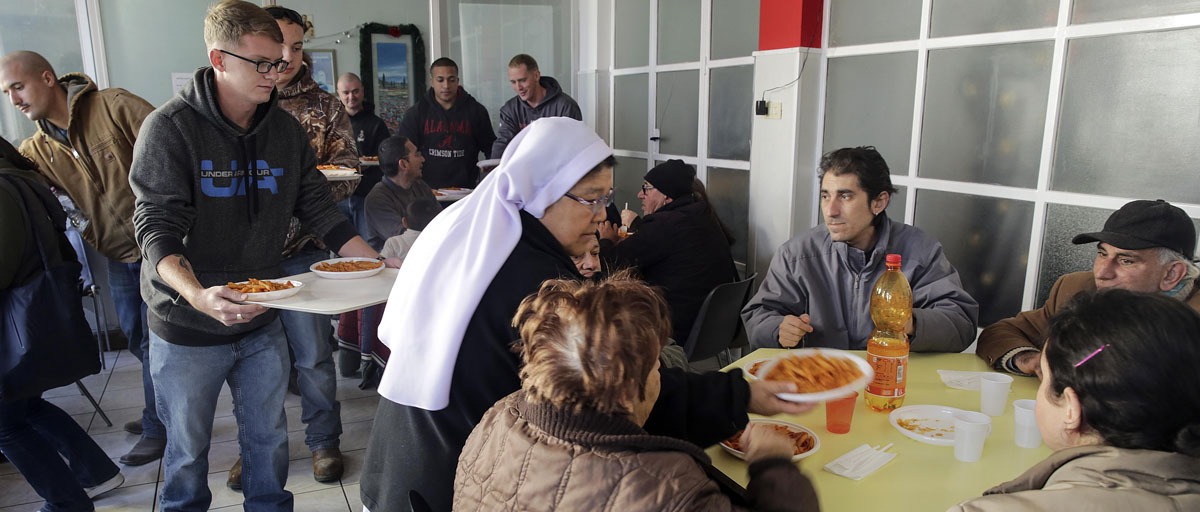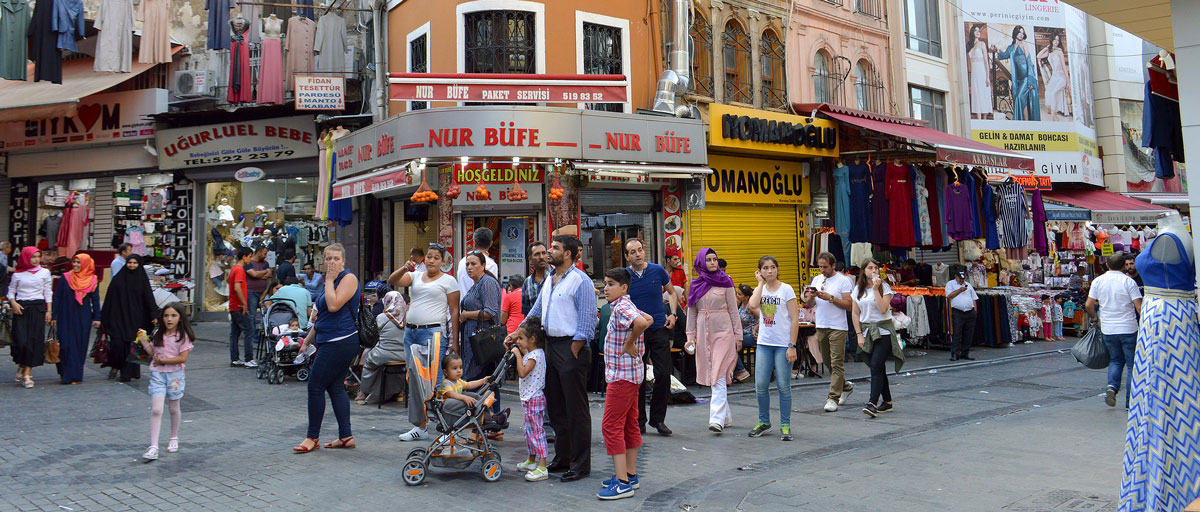
A new study shows that a growing number of well-organized food assistance initiatives not only streamline food surplus recovery and redistribution, but also facilitate improved access to various social services which would constitute significant improvements to fundamental functions of our society. Photo: Alexander Mitchell
Bildtext får vara max två rader text. Hela texten ska högerjusteras om den bara ska innehålla fotobyline! Photo: B. Christensen/Azote
food security
Small wins leading to the big win
Increasingly well-organised food assistance initiatives might help transform struggling official food and welfare systems
- Europe is witnessing an increase of people needing food assistance
- Because of this a growing number of well-organised food assistance initiatives are launched
- Their overall success means that innovative food assistance initiatives eventually may do more than just offering temporary relief of hunger and poverty
Food banks might not be the first thing that comes to mind when thinking about Tuscany. Amid the wine, the gastronomic delights and the historic architecture, another side is becoming increasingly visible: food banks and soup kitchens. As with the rest of Europe, Tuscany is witnessing an increase of people needing food assistance. Financial crises and flows of immigration have precipitated an increase in poverty in Italy, with 4,6 million people living in absolute poverty in 2015, the highest level since 2005. This has led to a growth in civil society initiatives that provide food for people who are struggling to obtain enough food the usual ways. That might sound like a welcoming relief to a struggling welfare system but critics argue that the relief is nothing more than temporary pain relief.
However, research suggests that the growing numbers of well-organised food assistance initiatives are doing more than just that.
Momentum for larger changes
In a study recently published in the journal Local Environment, centre PhD student Aniek Hebinck and colleagues have studied three food initiatives in the Netherlands, Ireland and Italy. Although there are differences in approach and how they operate, their overall success means that innovative food assistance initiatives eventually may do more than just offering temporary relief of hunger and poverty.
“We believe that “small wins” can create momentum for larger-scale changes,” says Hebinck, it is important to identify those changes that would otherwise go unnoticed.
These initiatives can not only streamline food surplus recovery and redistribution, but also facilitate improved access to various social services. All of this would constitute significant improvements to a wide variety of fundamental functions of our society.
Aniek Hebinck, lead author
The work being done in Tuscany is a case in point. Food assistance provisioning is managed by non-profit organisations and social enterprises, often faith-based and strongly reliant on voluntary work. Food is supplied via many sources, ranging from surplus food recovery and donations from the food industry and retailers, or publicly subsidized through the Fund for European Aid to the Most Deprived (FEAD). Most of the initiatives offer distribution of food parcels, soup kitchens or food vouchers. The latter has emerged as a new form of food assistance provision through for instance the Emporia of Solidarity initiative. Similar to social supermarkets, Emporia units resemble shops with controlled access where people can do their shopping for free with an assigned electronic card. The initiative is the collaboration between several organisations including municipalities, Caritas – an international Catholic social service organisation, and others.
“None of them could have offered this service separately,” says Hebinck. Through their different networks with public actors and local suppliers, the Emporia have been able to diversify the sources of supply, reduce the dependency from donors and provide a broader range of products.
They have also been able to offer a range of non-food-related services such as family budget courses, babysitting services and Italian language classes.
Strong sources for improvement
Similar stories of success can be found in Ireland and the Netherlands too, highlighting a new flow of initiatives that are changing the narrative about food provisioning. The likes of Emporia and other initiatives go beyond merely providing food relief, they also contribute to significant changes in for instance food waste reduction and social welfare provisioning. In the Netherlands, the association of Dutch food banks (VNV) acts as a trusted space for individuals that for some reasons are not reached by the official welfare system. In Ireland, better food supplying networks have led to charities being able to spend less on the purchase of food and more towards initiatives that address the root causes of poverty.
Ultimately, Hebinck and her colleagues argue, these initiatives can contribute to changes that can improve both social welfare and food waste management.
“These initiatives can not only streamline food surplus recovery and redistribution, but also facilitate improved access to various social services. All of this would constitute significant improvements to a wide variety of fundamental functions of our society,” Hebinck concludes.
Methodology
This research builds on a post-analysis comparison, as the three explorations of food assistance initiatives originate from the TRANSMANGO project (transmango.eu). This was originally focussed on Food and Nutrition Security and led to participant-observation and interviews with the food initiatives and various actors (such as food industry, social workers and local government). This quickly led to the insight that food assistance contributes to food poverty alleviation in different ways than is generally expected; this motivated the researchers to draw up a comparison. To give a good overview of the scales the initiatives operate in/on, while keeping a clear focus on change, the research built on the Transformative Social Innovation theory. Overall, this theorises how societal transformation comes into being. Seeing societal transformation as made up by ‘different shades’ – i.e. different levels, makes it possible to see highlight the ‘small wins’ food assistance accomplishes in sometimes unexpected areas. Each of the cases where therefore mapped in terms of these different levels that together make up Societal Transformation, which allowed for the comparison.
Hebinck, A., F. Galli, S. Arcuri, B. Carrol, D. O. Connor, and H. Oostindie. 2018. Capturing change in European food assistance practices : A Transformative Social Innovation perspective. Local Environment: The International Journal of Justice and Sustainability:1–16.
Aniek Hebinck is a PhD student at the centre. Her research explores urban food systems, and in particular what role the notion of (civil) participation can play in making these more resilient








